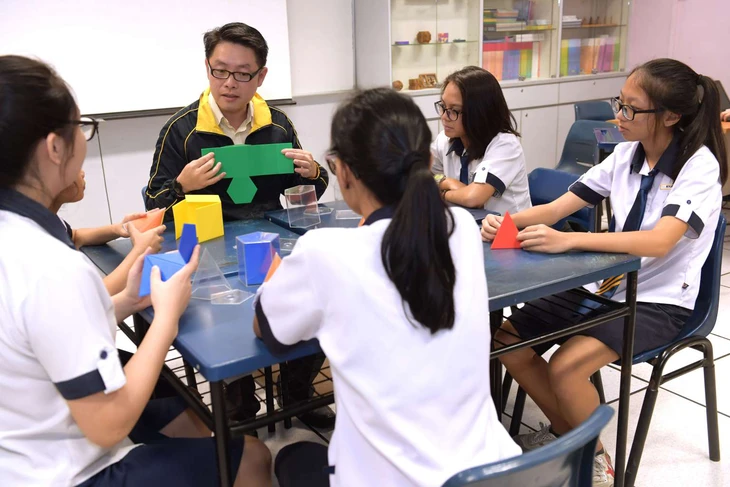
International students in Singapore - Photo: STRAIT TIMES
'At what age should children study abroad?'
This is one of the useful tips that experts shared at the seminar on studying abroad organized by the Ho Chi Minh City Overseas Vietnamese Support Center (under the Ho Chi Minh City Association for Liaison with Overseas Vietnamese) in collaboration with Hanbridge Academy Singapore on the morning of August 16.
MSc. Dinh Hoang Ha - Director of Hanbridge Singapore Academy in Vietnam - said that over the years, he has often received familiar questions from parents: "At what age should children study abroad?".
From his consulting experience and his own journey of sending his two children to Singapore to study from junior high school, Mr. Ha has drawn up the "4 readiness" formula, corresponding to the 4 factors that need to be carefully prepared before making a decision.
According to Mr. Ha, the first "2 readiness" belongs to students.

MSc. Dinh Hoang Ha shares at the event - Photo: TRONG NHAN
First of all, be ready to live independently . Even if you have relatives or guardians at your destination, international students still need to be able to study and take care of themselves: know how to cook, do laundry, and handle everyday situations such as when you have a fever.
"Many people who go abroad still maintain the habit of depending on their parents, which is a big obstacle when starting a new journey," Mr. Ha emphasized.
The second is readiness to integrate . Students need to have enough foreign language skills to study in a 100% English environment, and at the same time adapt to teaching and testing methods that are different from those in Vietnam.
Beyond the classroom, integration extends to the community, culture, law, etc. These are gaps that, for many young children, are not easy to overcome.
"Parents should observe and measure these two factors in their children. They can let their children participate in skills courses and experiential activities in the country to see if they are truly independent, confident and adaptable. If they see that their children are not good enough, do not rush to push them," Mr. Ha recommended.
The remaining "2 readiness" is for parents. First is financial readiness : need to determine how long the study abroad itinerary will last, the specific costs, and how stable the financial resources are.
Finally, be prepared to be away from your child . Many families, despite having prepared financially, are still psychologically unstable. When the day of departure approaches, they still do not truly believe that their child can be independent abroad.
"This is a mental problem that parents must practice for themselves," Mr. Ha shared.
A lot of pressure waiting
What Dr. Nguyen Manh Hien - a business consultant in Ho Chi Minh City - once accompanied his children to study abroad during COVID-19. He learned from his two children's study abroad experience is the problem of trust.
According to him, many Vietnamese parents often worry too much when their children are away from home, from food and drink, to studying, to even small risky situations.
"But in reality, if your child is well prepared and has basic independent skills, parents should let their child handle things themselves and believe that they will grow from those setbacks," said Mr. Hien.

Experts, parents, and students share diverse perspectives on preparing for studying abroad - Photo: TRONG NHAN
He added that parental support should come early, while the child is still in Vietnam. Letting the child cook, do their own laundry, manage their own pocket money, or know how to deal with illness are small skills that create a big foundation.
When moving to a completely new environment, that independence helps children not be overwhelmed, and parents are less burdened with worries.
Meanwhile, at the age of 16, Nguyen Song Thao Huong (born in 2006) left Vietnam for Singapore to study a British university program.
Huong said that in the early days of studying abroad, one of the difficulties was how to arrange her own study schedule, manage her rest and entertainment time. The international program requires high intensity, many subjects put pressure on Huong, but knowing how to balance helps you maintain your health and study effectively.
According to you, being independent from an early age helps you mature faster, but also requires the ability to manage time, finances and health.
After graduating, the journey to find a job in Singapore was also a memorable experience. Huong said she had to learn how to prepare documents and attend many interviews before landing a good career opportunity. Her secret is not to be afraid to try and not to be afraid to experience.
Many high school study abroad routes in Singapore for international students
MSc. Dinh Hoang Ha shared that international students can study at public schools through the AEIS exam, continue with the GCE O-Level pathway, then go on to Junior College or Polytechnic.
In addition to public schools, many families choose private schools with a "fast-track" model, taking only 24 - 38 months to receive a university degree by the age of 20.
Students can also study at international schools with programs such as IB, A-Level, AP or BTEC, suitable for transfer to the UK, US, and Australia.
The cost of studying and living in Singapore ranges from 1,000 - 1,200 SGD/month, depending on the type of school and program.
Source: https://tuoitre.vn/cong-thuc-4-san-sang-truoc-khi-cho-con-du-hoc-20250816115642838.htm


![[Photo] Prime Minister Pham Minh Chinh chairs the Government's online conference with localities](https://vphoto.vietnam.vn/thumb/1200x675/vietnam/resource/IMAGE/2025/10/5/264793cfb4404c63a701d235ff43e1bd)



![[Photo] Prime Minister Pham Minh Chinh launched a peak emulation campaign to achieve achievements in celebration of the 14th National Party Congress](https://vphoto.vietnam.vn/thumb/1200x675/vietnam/resource/IMAGE/2025/10/5/8869ec5cdbc740f58fbf2ae73f065076)

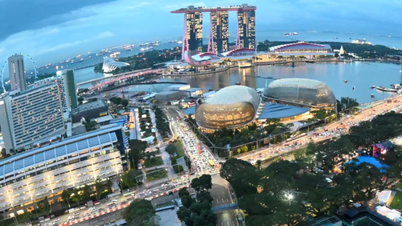










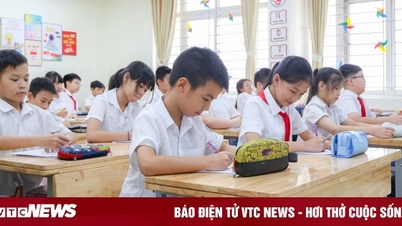

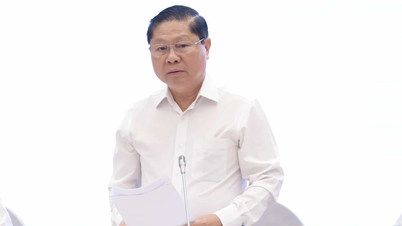

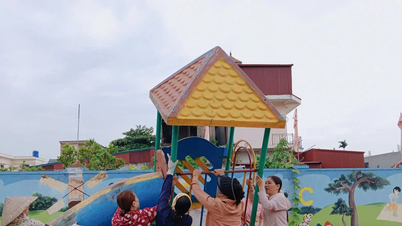


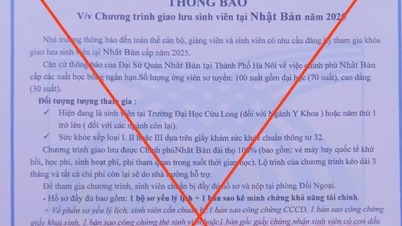








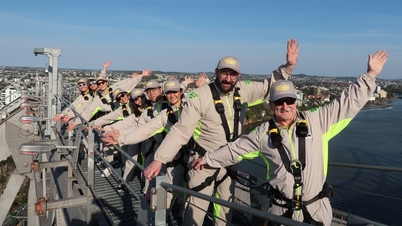


























![[VIDEO] Summary of Petrovietnam's 50th Anniversary Ceremony](https://vphoto.vietnam.vn/thumb/402x226/vietnam/resource/IMAGE/2025/10/4/abe133bdb8114793a16d4fe3e5bd0f12)

![[VIDEO] GENERAL SECRETARY TO LAM AWARDS PETROVIETNAM 8 GOLDEN WORDS: "PIONEER - EXCELLENT - SUSTAINABLE - GLOBAL"](https://vphoto.vietnam.vn/thumb/402x226/vietnam/resource/IMAGE/2025/7/23/c2fdb48863e846cfa9fb8e6ea9cf44e7)














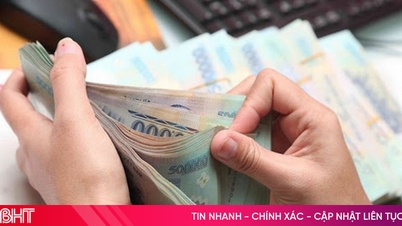

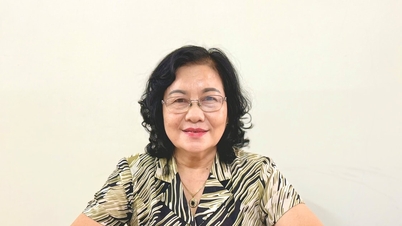


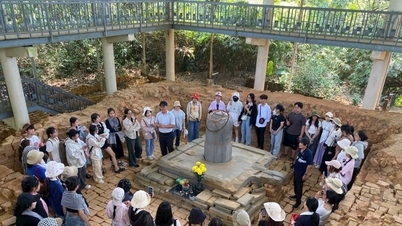
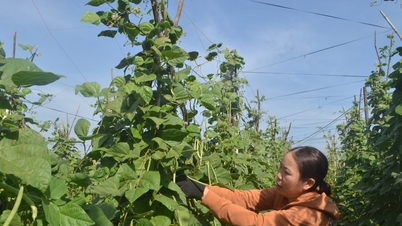
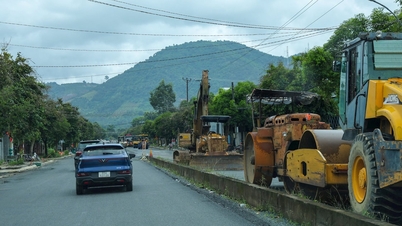













Comment (0)